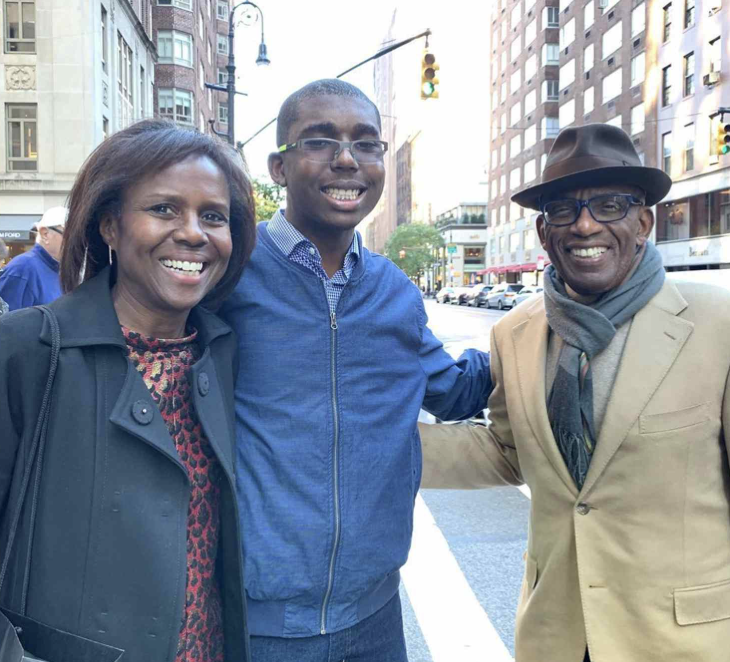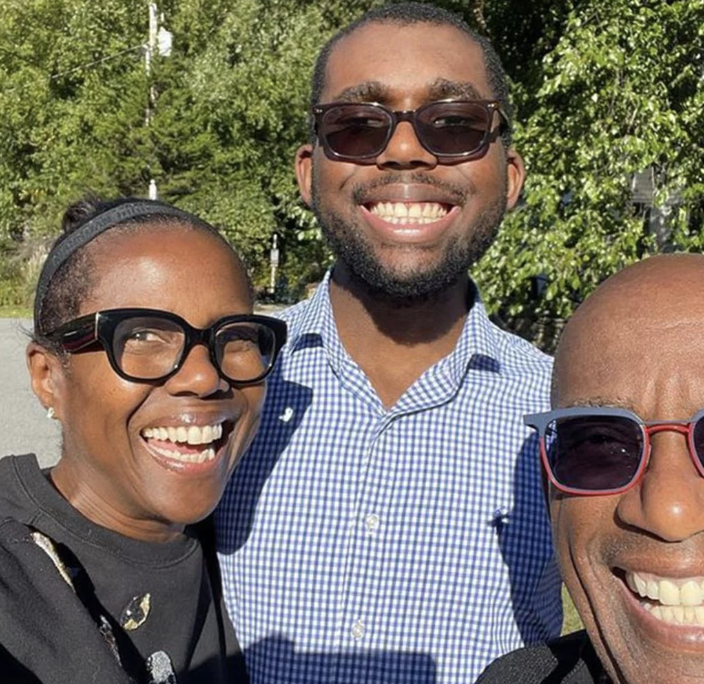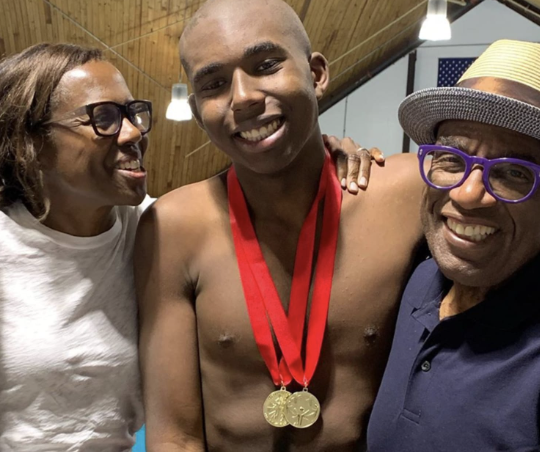Al Roker shocked audiences with his confession about his son Nick’s special needs when it comes to s3x—his son who is “ill and not like other people”: “I love my boy so much, but I can’t let him turn into someone bad…”
In a deeply personal revelation, television personality Al Roker opened up about the challenges and triumphs of raising his son, Nick, who has special needs. During an interview, Roker addressed the complexities surrounding Nick’s development, particularly regarding his understanding of relationships and sexuality. This confession has sparked significant discussion among parents and experts alike regarding how to approach the sensitive topic of sexual education for children with special needs.

Roker’s candid reflections reveal not only the love he has for his son but also the heightened concerns that accompany parenting a child who doesn’t adhere to societal norms in various aspects. Al portrays the journey with profound honesty, acknowledging his fear that he must actively guide Nick to ensure he does not encounter potential challenges as he matures. He expressed, “I love my boy so much, but I can’t let him turn into someone bad,” highlighting the protective instinct that underlines his approach to parenting Nick.
The Journey of Understanding and Acceptance

Roker shares the profound journey of raising Nick, who has developmental delays and is on the autism spectrum. This voyage has been filled with both heartwarming moments and substantial hurdles. Over time, he has witnessed incredible growth in his son, who has transitioned from a toddler with speech and mobility challenges into a spirited teenager. Nick has established himself not only academically but also within his community, notably achieving the status of a black belt in taekwondo, which serves as a testament to his tenacity and dedication.
One of the keys to Nick’s success has been the unwavering support from Al’s wife, Deborah Roberts. Roker credits Roberts with fostering an encouraging environment that has allowed Nick to thrive. She has emphasized the importance of acceptance and understanding, helping Nick build a sense of identity that is unique to him. Together, they have worked diligently to navigate the complexities of life with a child who has special needs.
Education and Awareness in Sexual Health

When discussing Nick’s experience with understanding sexuality, Roker highlights the need for appropriate sexual education tailored to children with developmental delays. This conversation is crucial, as it addresses not only the educational gap that often exists but also the misconceptions that can arise when discussing sexual health in the context of special needs. Al expresses that parents need to approach these topics with sensitivity, ensuring they empower their children with the knowledge they need to make informed decisions.
Roker’s openness about his fears and responsibilities as a father underlines the vital need for education surrounding sexual health. By acknowledging that Nick may not have the same understanding of relationships as his peers, he showcases the importance of parental guidance. This perspective invites a broader dialogue on the ethical implications and responsibilities parents face in preparing their children for real-world interactions.
The Importance of Community and Engagement

As a proud father, Roker notes the significant role that community plays in a child’s life, especially for those with special needs. Nick’s involvement in the Church, where he serves as the principal cross bearer at St. James Episcopal Church, is more than a spiritual journey; it is a platform for connection and growth. Al highlights how supportive peers and mentors at the church foster Nick’s sense of belonging, allowing him to cultivate friendships and develop social skills.
This community support is critical for children like Nick, as it creates an environment where they can learn from one another, share experiences, and celebrate accomplishments together. Al acknowledges how essential it has been for Nick to interact with other children, including those who may have similar challenges. This engagement helps Nick form a positive self-image and helps counter any isolation that might arise from his special needs.
Roker’s reflections encourage other parents in similar situations to seek out community and support networks. It serves as a reminder that, while the journey may be complicated, it is also filled with opportunities for growth, connection, and understanding. The dialogues about acceptance and love encompass broader societal implications as families engage with and support children with special needs.

Ultimately, Al Roker’s heartfelt disclosure about Nick’s journey serves as a guide for many navigating the nuanced world of parenting a child with special needs. By sharing both his struggles and triumphs, Roker sheds light on the importance of love, education, and community support in helping children thrive while managing the complexities of life. As he continues to share their story, Al Roker inspires countless families to embrace their unique journeys with resilience and hope.
In conclusion, exploring the intricate aspects of raising a child with special needs not only provides valuable insights but also emphasizes the need for community support and understanding. If you are a parent in a similar situation or know someone who is, consider reaching out to local support groups or educational resources to equip yourself and your child with the necessary tools to navigate life’s challenges positively.





